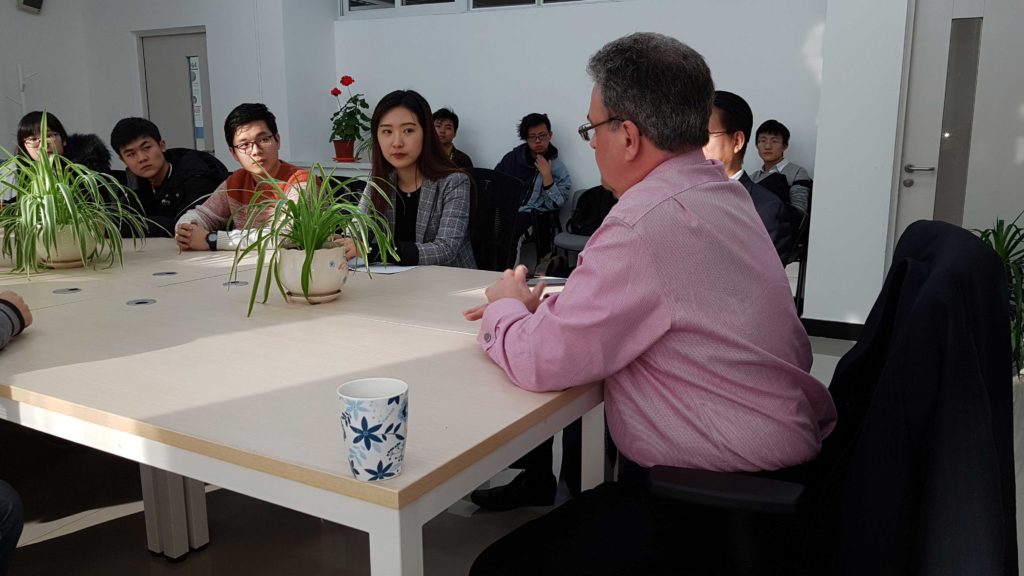Transnational Education. University of Leicester
Transnational Education (TNE) has become an important feature of higher education in the United Kingdom and many other countries. The main feature of TNE is that part or all of the course is delivered in a country that is different that the home of the awarding institution. It may be delivered by that institution (e.g. at an international campus), by other institutions (e.g. through franchising) or in partnership with institutions in other countries. TNE courses can be delivered on site, online and in combinations of both utilizing staff from the home and partner organisations.
Also see the section on Transnational Education
The benefits
The growing popularity of TNE with students, HE institutions and potential employers, combined the flexibility in models of delivery lead to a range of potential benefits:
Potential benefits for students:
- Enhanced international experience during their studies (including “home” students)
- Access to a more diverse curriculum
- Opportunities for more flexible delivery of courses (e.g. distance learning and split locations)
- Enhanced global experience and skills to build CV
- May be less expensive than undertaking a full course in another country
- May help in situations where there are restrictions with visa
- Can help providing educational opportunities when students are restricted in their ability to travel because of family or economic responsibilities.

Potential benefits for higher education institutions
- Access to a larger and more diverse pool of potential students
- Enhanced diversity in students and location can build resilience into business models
- Working in partnership can help to build reputation
- Working in partnership on education can create opportunities for collaborative research and innovation activities
- Potential for growth in student numbers and revenue when “home” markets are restricted.
Potential benefits for employers
- Better quality of graduates with enhanced skills and global experience
- A large pool of more diverse graduates
- Graduates with practical experience of living and working in different cultural contexts
- Many graduates will obtain enhanced language skills
- Graduates who already have potential professional networks in other countries
Challenges with TNE
The expansion of TNE in recent years has generated some notable examples of success, but also a growing recognition of potential challenges and risks.
From a student’s perspective the main risks relate to the quality of the course and value for money when compared to traditional in country delivery either at home of as an international student enrolled at the home campus in another country. Some students may also find the social and cultural dimensions of TNE a challenge, but this should be no more than experience by any international student.
From the perspective of higher education institutions there are a number of high-level challenges and risks, but the nature of these vary depending on the TNE model that is selected.
- Reputational. Does TNE enhance or potentially damage the institution’s reputation or devalue the home country offer?
- Financial. Does the TNE initiative have a viable and resilient business plan. Are estimates of student numbers and delivery costs/logistics realistic?
- Regulatory. What are the additional regulatory requirements that are required to deliver courses through TNE?
- Competition for resources with home delivery. Does the TNE delivery draw resources away from the delivery of core business at the home campus. This can involve academic staff time if flying faculty or e-learning approaches are used, but can also include infrastructure investments such as IT.
Results
A strategic approach for the University
Reporting to the University’s Executive Board I developed a strategic approach for TNE. This applied lessons learnt and Leicester and more broadly to define a set of guiding principles that are now being applied. These included:
- Focusing on a smaller number of strong TNE activities, which are supported by realistic business plans and projections of student numbers.
- Delivering high-quality education to students, based on academic and research strengths, with a product that represents value for money and enhances employability.
- Working in partnership, and planning to build research and enterprise or innovation opportunities into future TNE developments.
- Building resilience into the University of Leicester’s TNE offer. Broadening the types of courses offered and the countries they are available in.
An early version of this strategic approach was presented to a public event in December 2018. More recent work is not yet in the public domain.
Consolidating growth in China
Virtually all of the University’s TNE delivery was in China with two Joint Educational Programmes (JEPs) and one Joint Educational Institute (JEI). The most important was the JEI with the Dalian University of Technology which was delivering courses in Chemistry, Engineering and Mathematics. This partnership is currently approved to have an annual intake of 300 students. A second major initiative is scheduled to recruit its first students in 2020 for a medical course with the Chongqing Medical University.
The main focus on work in China was to ensure that these major initiatives were operating efficiently and starting to apply the new strategic approach to these key partnerships. There was also work to other partnerships in China to enhance the sustainability of the overall portfolio
Reviewing and then diversifying the broader global portfolio
The strategic approach to TNE at the University of Leicester was applied to the entire international TNE portfolio, including a large pipeline of potential initiatives in countries other than China. Nearly all were found to be unlikely to be viable and new developments were discontinued in those cases. A smaller set of higher value potential partnerships and approaches remained which are likely to be explored in the future.